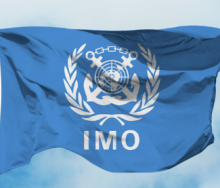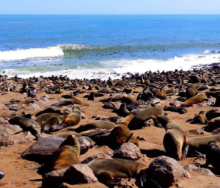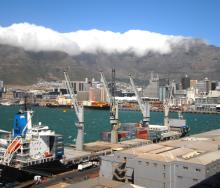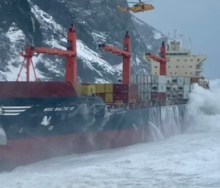Mounting hunger, hardship and economic decline underscore the necessity of South Africa lifting the current lockdown, says the Institute of Race Relations (IRR).
In an online briefing this morning, Jeffery warned that "catastrophic consequences still loom for millions of South Africans, who could yet lose their jobs and homes, exhaust their savings, and go bankrupt under mountains of debt. With the formal economy still operating at a fraction of its normal capacity, tens of thousands of small and micro businesses could also collapse before long. Many would have little or no prospect of ever coming back."
The longer the lockdown remained in place, "the more people will be pushed into poverty".
Jeffery notes that estimates of the economic cost of the current lockdown range from R13bn to R20bn a day. Given that the economy – after decades of mismanagement, poor policy, and corruption – was on its knees even before the lockdown began, it ‘simply cannot cope with this enormous further blow.
"Worse still, the lockdown cannot and does not work in teeming townships and informal settlements, where homes cluster closely together, many structures house families of four or more, and scarce communal taps and toilets are shared among hundreds of residents."
Jeffery points out that available data "now confirms, moreover, that the current hard lockdown has not stopped community transmission to date and therefore cannot be expected to do so in the future".
She warns: "The longer the lockdown lasts … the more hunger and hardship it will unleash."
The IRR’s submission argues that the key issue facing the country "is not the crude one of whether 'profits' can be put before 'lives', as the EFF and some others have stated, (but) how best to balance lives vs lives".
The IRR recommends scrapping the lockdown with immediate effect within the parameters of three basic principles:
- Allowing all businesses to return to work, while shouldering the burden of safeguarding their staff, customers, and suppliers against the virus as far as is reasonably practicable;
- Maintaining social distancing for many months and, if necessary, self-isolation or quarantining for the people most vulnerable to the virus; and
- Keeping children out of school until September, as allowing their earlier return risks undoing whatever gains the lockdown has brought.
"Lifting the lockdown must be accompanied by increased efforts to slow down the spread of the virus. This critically depends on speedily identifying the infected so they can be isolated in their homes or, on a voluntary basis, accommodated in voucher-funded isolation or quarantine facilities, as earlier outlined. All individuals who have recently been in contact with those now known to be infected must also speedily be traced, tested, and isolated or quarantined.
"Private sector expertise is critically required to expand the country’s still limited testing capacity."
The submission also calls for public-private partnerships – through urgent but competitive tendering processes, shorn of damaging BEE requirements – to improve the management of public hospitals and clinics. This would help to guard against the inefficiency, negligence, wasteful spending, and corruption that so often bedevil the public healthcare system.
"The burden on the public system should also be reduced by increasing access to private healthcare for severely ill patients. This can be achieved via tax-funded emergency Covid-19 treatment vouchers, which need to be made available to all private hospitals for the treatment of these individuals.
"The private sector should also help kickstart serological testing (for the antibodies developed in fighting the virus) as soon as sufficiently accurate tests are available." - Article provided by the IRR.













